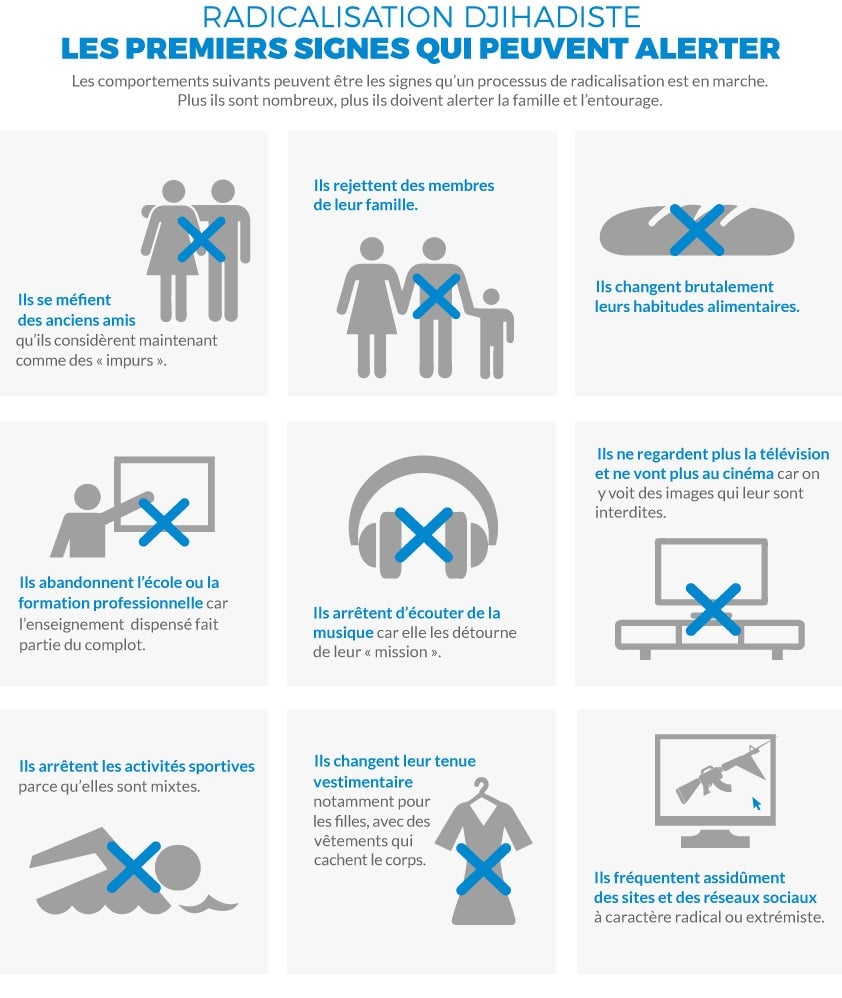If you live in France and don’t eat baguettes, you might be a terrorist
The French government, still reeling from a wave of terror attacks that began at the satirical magazine Charlie Hebdo, has embarked on a plan to spend $490 million on new security measures, including the recruitment of 1,100 police intelligence officers to help spy on at least 3,000 people who are constantly under surveillance as suspected threats in France.


The French government, still reeling from a wave of terror attacks that began at the satirical magazine Charlie Hebdo, has embarked on a plan to spend $490 million on new security measures, including the recruitment of 1,100 police intelligence officers to help spy on at least 3,000 people who are constantly under surveillance as suspected threats in France.
As part of this, France has launched a new website, Stop Djihadisme, to try and spot suspected militants—including this guide to telling if people you know are potential terrorists:

It includes such signs as suddenly changing eating habits (illustrated by a crossed-out baguette) and stopping listening to music—which are equated with more clear-cut signs of radicalization, such as surfing extremist websites and rejecting family and friends.
Reaction on the web was predictably droll:
But for much of France, the poster is not as tone deaf as it first appears. France has the highest population of Muslims in Europe—and it doesn’t have the best relationship with many of them, with longstanding enmities going back to French rule over Algeria. On top of that, hundreds of French citizens have traveled to Syria and Iraq to fight with radical groups, which terrifies many ordinary French people as well as the authorities.
Of the estimated 6 million Muslims in France, as many as 200,000 are thought to be converts, especially in the deprived suburbs, the banlieues. As the New York Times reported:
In many banlieues, Islam has come to represent not only a sort of social norm but also a refuge, an alternative to the ambient misery, researchers and converts say.
In a country that prohibits identifying citizens on the basis of national origin, race, or religion—the last census to record religious affiliation was taken in 1872 (paywall)—many have a strong sense of what is “French”—while the habits identified in the poster suggest what one might consider to be very un-French behavior. France’s prime minister has said that he wants to fight segregation.
But posters such as the one above arguably send out a different message to young Muslims: If you don’t conform, you are a potential threat.